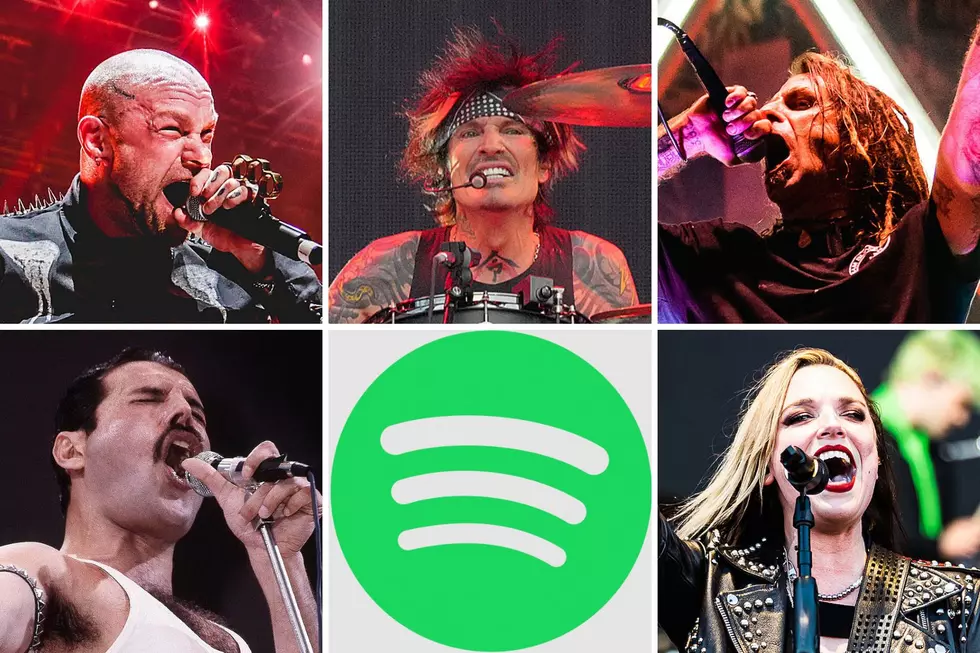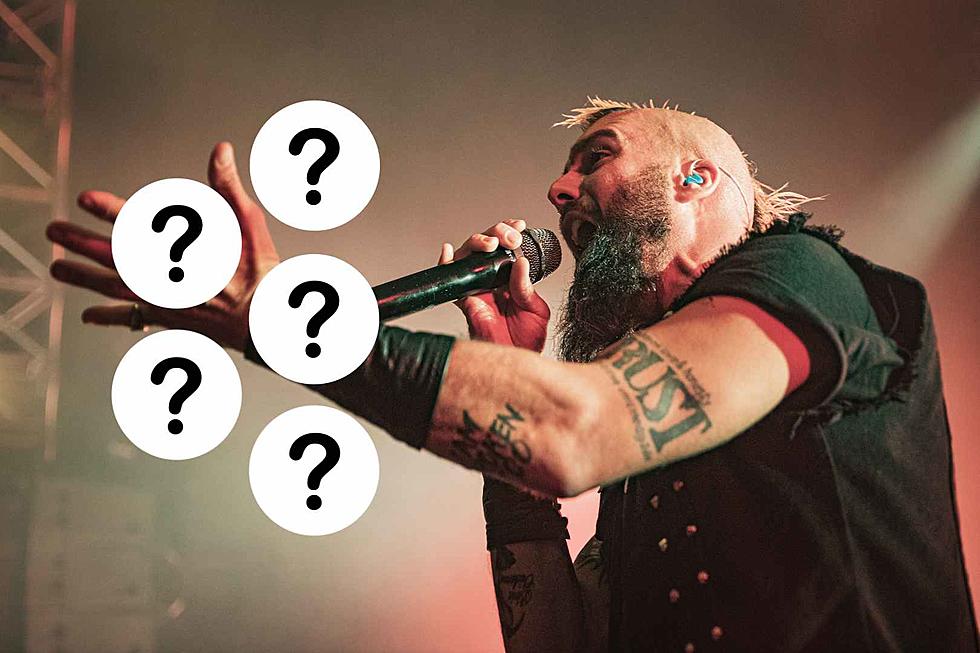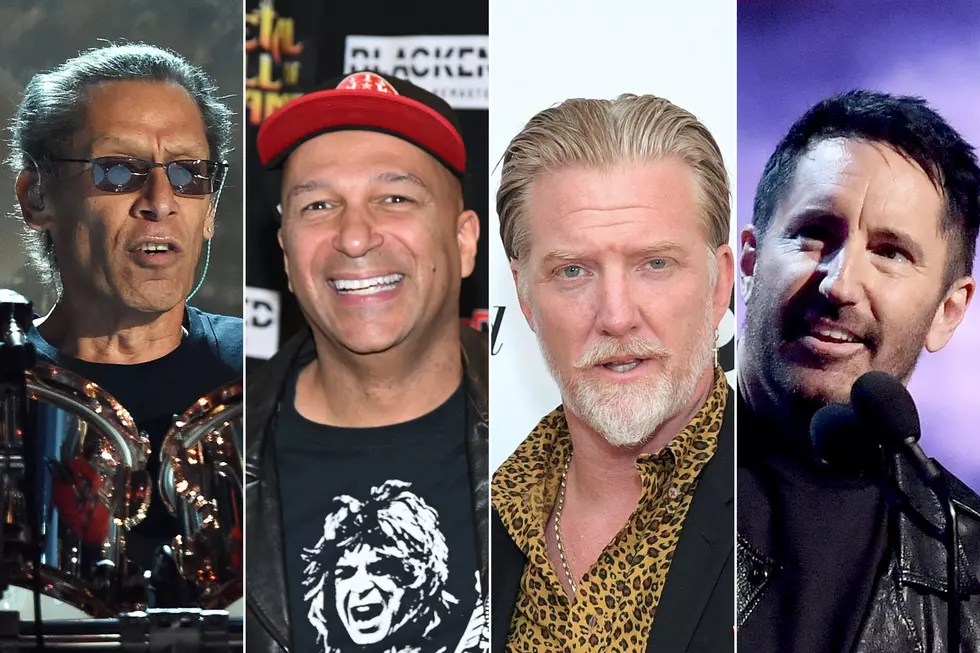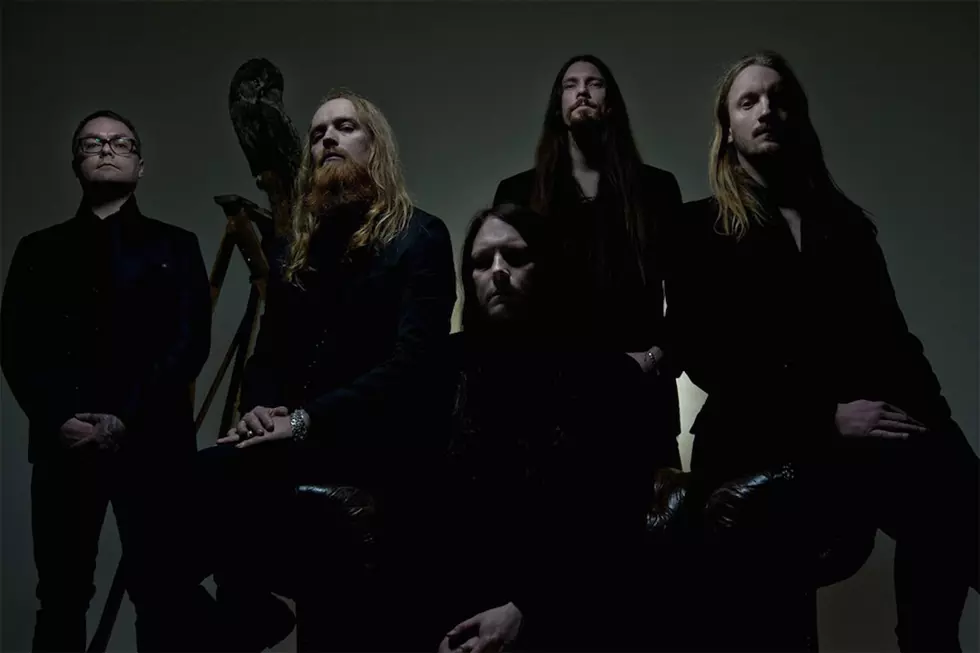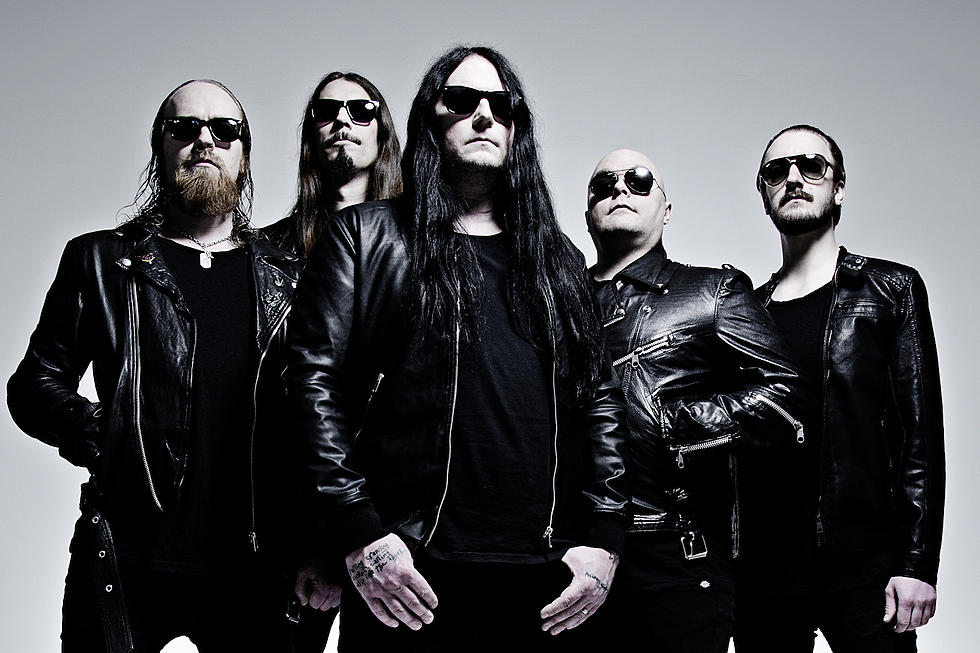
Interview: Inside Katatonia’s Hiatus, Comeback Album ‘City Burials’ + Jonas Renkse’s Quarantine Projects
Katatonia's career is marked by evolution. Their start as a melodic death/doom act in the vein of England's unholy trinity — My Dying Bride, Paradise Lost, Anathema — was short-lived across two under-appreciated records as they shifted to a melancholic rock/metal sound they've managed to keep fresh over the course of what will be 11 albums by the time City Burials drops on April 24.
Prior to writing this new record, the band entered a brief hiatus phase, which they had announced in late 2017. To many, it was a surprising move for a band who never seemed to grow creatively stagnant at any point, but, of course, there are many other factors to being a musician than merely writing and performing music.
In this interview, we spoke with singer Jonas Renkse, who shed some light on the band's decision to put everything on pause for an undetermined amount of time, where he felt the band was at creatively during recent album cycles and how Katatonia intentionally threw fans off with the release of the first City Burials single, "Lacquer."
As much of the world remains in self-isolation/self-quarantine at home due to the coronavirus pandemic, the singer admitted he's got quite a bit of time on his hands and absolutely intends to focus on writing new music during this down period. Collaborative projects are very much on the table as well.
Let's start off by talking about the hiatus. This far into a career, it seems like it's something that can be tremendously beneficial to a lot of bands to just unplug for a bit and reboot. How did Katatonia first enter the conversation about taking a hiatus in the first place?
We felt that we needed to recharge and get some perspective. Basically we did a lot of touring from previous albums and by the end of that, the last few gigs, I think we all felt that we were pretty sick of being away from home for such a long time.
There were a lot of different reasons for doing this, but in the end, taking a few steps back to evaluate what you want to do next and have some time off is very healthy.
Did some of the lineup turnover in the last 10 years at the guitar and drum position have any effect on the hiatus decision?
Not really. I think we would have done it even if we had the same lineup. It didn't come down to any of the band members having fights or anything like that. There's no drama at all, but for me, [co-founding guitarist] Anders [Nyström] and partly also [bassst] Niklas [Sandin], we've been doing this album release/tour cycle on repeat and we weren't exactly sure if we wanted to continue. We wanted to see if we had the drive still and once we got back together, everybody had certainly missed the band very much, so it was an easy choice to just go on. Perspective is a good thing.
Did you feel the band had been creatively indecisive at any point? Is there an album, in hindsight, that maybe you weren't personally as into as you would've liked to have been?
I would have loved to see a little bit more experimentation on Dead End Kings. I still think it's a strong record with really good songs, but it needed some different ideas. The Fall of Hearts, our previous album, is definitely a reaction towards Dead End Kings — it's very experimental with longer songs and a lot of stuff going on.
This new album is maybe a reaction to The Fall of Hearts because this album is a little bit more direct and straight to the point. Usually, our albums are a reaction to its predecessor.
It's funny you mention things being more direct because the first single, "Lacquer," is so starkly different than the rest of the album — it's softer, more cinematic and beat-driven. What statement were you looking to make by choosing this song as the first piece of new music that fans hear off City Burials?
We all felt it was a great song and it represents Katatonia very much, but in a different way than people would expect us to release as a taste of a new album. It made people talk, which we thought was a good thing — they're very fast to draw their own conclusions. We knew that people would say, "Oh, this band has gone way too soft."
Katatonia, "Lacquer"
It's one of the best songs I've ever written. Once the album is out there, hopefully they will be positively surprised that the album does not sound exactly like that all the time.
"Lacquer" really reminded me of Wisdom of Crowds, the album you made the Bruce Soord from The Pineapple Thief.
I wouldn't hesitate to do a full album like that song, but for Katatonia, it's not the way to go to be full on electronica — we're still a rock band or a metal band.
I could definitely see myself experimenting with that stuff on the side, maybe as a solo thing in the future. Until that happens, I think it's a little bit of a trademark for Katatonia to have one or two or one or two of these kind of songs on the album. We call them breathers because if you put them between two more maybe heavy songs or, or more upbeat songs, it's a welcome break.
Bruce Soord With Jonas Renkse, "Frozen North"
I know there's a bit of a tradition between Katatonia and Opeth that whenever either band finishes an album, all of you get together for a small listening party. Did you do that this time as well?
I was at Mikael Akerfeldt's place and I was playing him the album, but it was only me, him and his girlfriend present, but it's a tradition. We tried to keep it up as much as we could, but we didn't have the time to do it when the Opeth released their new album.
Mikael and I are very, very close friends and I'm always interested in hearing his opinion on the music that I've made and that Katatonia has made and I think he thinks the same way when it comes to his new records.
Did Mikael have any facial expressions or comments that surprised you, for good or for bad?
Not really, because he's deliberately trying not to give away anything by trying to keep a very straight face, so he's hard to read in that way. Afterwards we do talk about the album and he would point out stuff that he liked and then we'd listen to it again and then after a few glasses of wine and it would be more "friendly" [laughs] but he likes to keep a stone face when he's listening for the first time.
One lyric that really grabbed me was "You're like a torch to the temple of depression" which is on "Behind the Blood." Where did that line come from?
That song is what I call the heavy metal song on the album because we wanted to achieve something like a Judas Priest or Accept song, but in a Katatonia way. The biggest task for me was, 'How could I write lyrics to a song like this?' Musically, it's not overly depressing — it's a bit upbeat and the only way to go was to write about drinking and having a good time. That's the torch to the temple of depression — trying to overcome your demons with having a good time with alcohol and friends.
Katatonia, "Behind the Blood"
Is there any point in your life where you've struggled with alcohol dependence as a coping mechanism?
Not really. I've been thinking about it, but I don't think I have that problem because I do like drinking, but I also stay off the drinking for long periods. I don't feel like it's something that I have to do, but I can definitely see how people take to drinking when they're having a problematic time or if they're depressed because it is a remedy in that it definitely helps you... until it's not helping anymore.
When you're in a band and you're touring, there is a lot of drinking going on, but at the same time, you have to try and keep focus for the next show. You can't really get drunk every night, so I like to have a bit of wine after the gigs just to wind down and maybe fall asleep a little easier on the tour bus, but nothing more than that really. It's dangerous and you have to keep the balance. It's easy, if I think it's easy to fall over the edge and, and start doing it a little bit too often maybe.
Red wine or white wine?
Red wine, definitely. I don't like white wine. I only drink it when there is no red wine available. I like the more spicy, full body taste of red wine.
With the world practicing social distancing and self-isolation/self-quarantine due to the coronavirus pandemic, do you have any plans to work on any solo material? There's always the collaborative route to pursue, even if it's just writing and releasing a song or two to have some fun during this time.
I'm starting to make plans, but not anything really concrete yet. My first thought was to do something with Bruce [Soord], but then I realized that we can't actually see each other because we're in different countries, so maybe we should do an online collaboration and see if we can do the project again. I'm definitely going to turn to music now that I have a lot of time on my hands.
This is the time to do those joint things that you want. If you've been dreaming of doing something, now is the time to do it.
Thanks to Jonas Renkse for the interview. Pre-order your copy of Katatonia's 'City Burials' here and follow the band on Facebook, Twitter and Instagram.
See Katatonia in 2020's Most Anticipated Rock + Metal Albums
More From KZCD-FM
